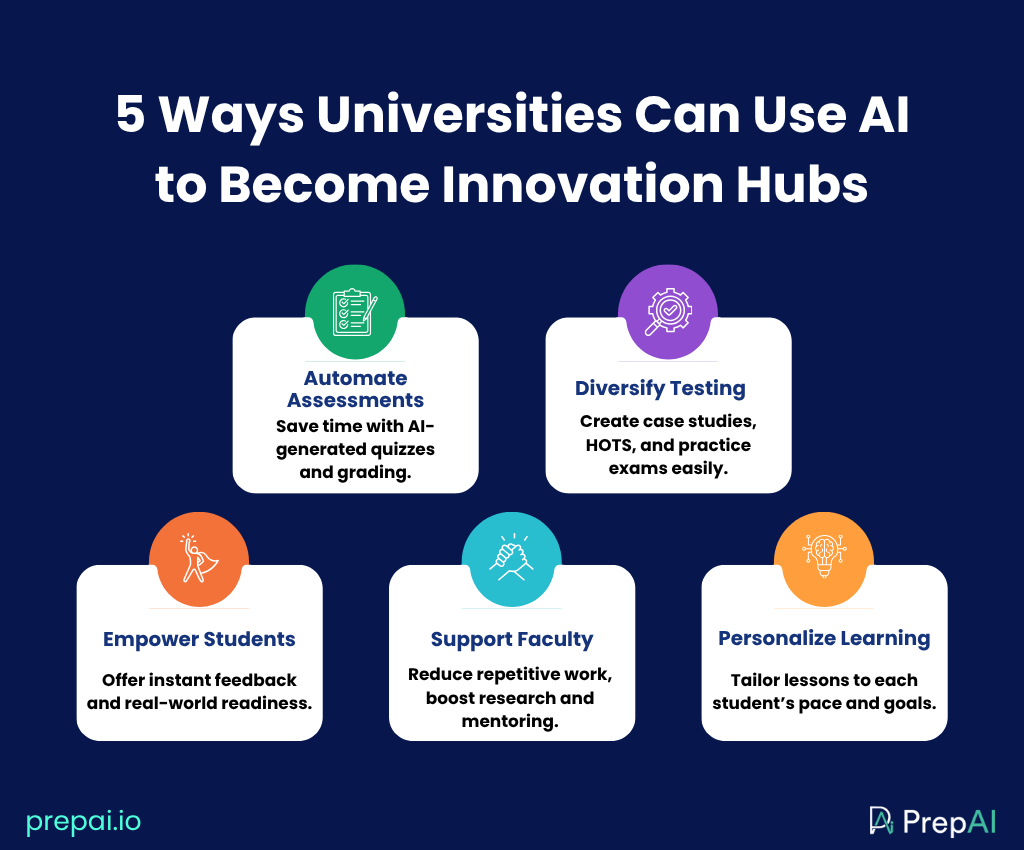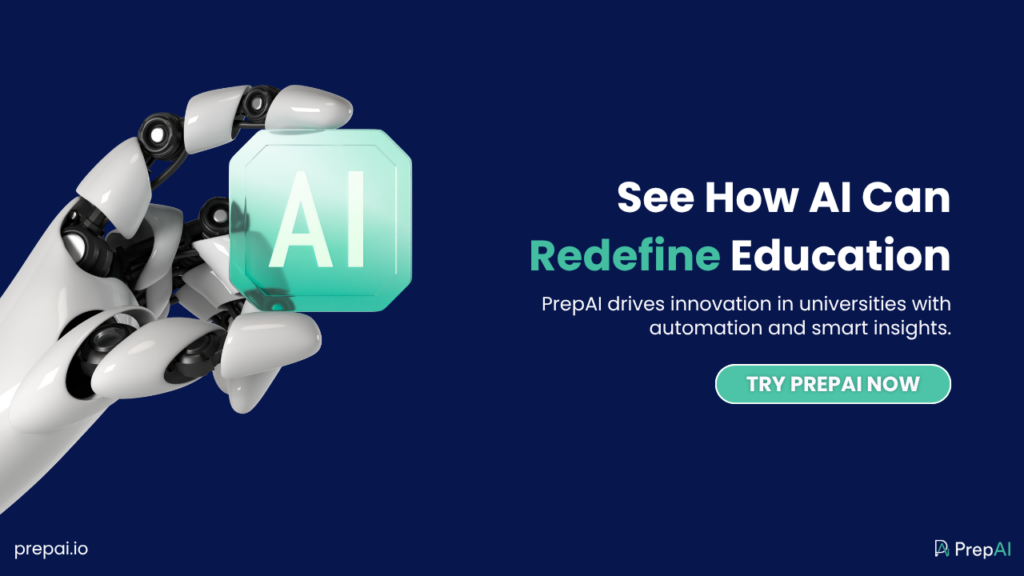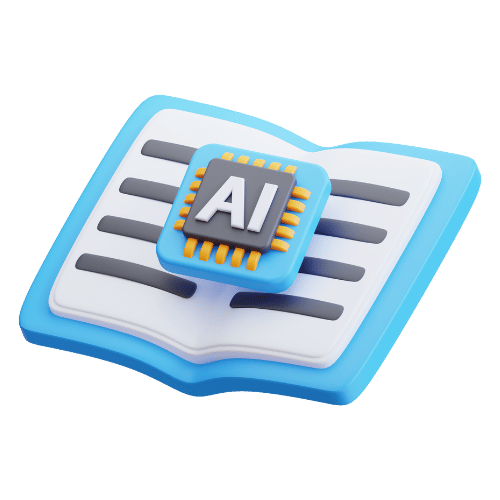"AI tools" refers to the tools that are backed by AI and help in streamlining the tasks. With AI tools every sector can flourish because it offers personalization, automation, and making content creation easy and accessible to all. In this blog, we will understand how AI tools can help universities become innovative and let educators focus on their personal development.
AI is unquestionably more than simply a passing fad in innovation. It promises to transform every industry, particularly higher education. AI tools for universities swiftly established themselves as a mainstay for everyday life, where educators can use them for a variety of tasks. Not only students, but also faculty members are adopting AI as they are recognizing its potential. According to the recently released Educause quick poll survey on Adopting and Adapting to Generative AI in Higher Ed Tech, 67% of higher education staff members currently use generative AI for their work, and 96% anticipate continued use in the future.
With the fast-changing academic landscape, universities are under pressure to do more than just educate students. Universities now have to innovate, lead, and prepare students and educators for an AI-driven world. It is vitally important that institutional leaders recognize and commit to productivity and efficiency. This has become quite easy now as compared to earlier. It has become essential for educational leaders to create an AI-friendly campus, which impacts the personal development of the students.
For decision-makers, this means rethinking not just what is taught, but how it is taught, assessed, and experienced. AI-powered tools like PrepAI are redefining the possibilities of education, helping universities reduce faculty workload, improve consistency, and unlock new streams of academic excellence. More importantly, they can help position your university as an innovation hub, a place where forward-thinking teaching and advanced technologies come together.
5 Ways Universities Can Adopt AI and Become an Innovative Hub
These days, businesses from all sectors are employing cutting-edge technologies like artificial intelligence (AI) to interact with, influence, and convert consumers. Similarly, some universities are integrating AI in academic institutions in order for students to learn how to use and benefit from AI. It is imperative that educators embrace and interact with AI that can be used in a classroom or university setting to facilitate risk-free experimentation, which is crucial. There are 5 ways universities can use AI for the development of students, educators, and administration. There are tools like PrepAI that can facilitate creativity and personalize learning with such AI-driven innovative strategies.

Streamline Assessments
Faculty burnout is frequently driven by repetitive, time-consuming responsibilities such as developing and marking assignments. AI in higher education has become the most used tool. Tools like PrepAI create question papers, quizzes, and practice materials almost instantly and in relation to specific learning outcomes and skill levels of the students. It also helps in ensuring consistency that upholds academic standards while allowing instructors to devote more attention to teaching, research, and mentoring students.
These tools can also create assessments according to the difficulty level, which help students to learn more according to their capability. For university leaders, the use of AI can be an improved faculty resource investment and measurable improvement in the quality of instruction. The university that adopts AI as a solution will set the standard for tomorrow and will be investing in innovation, reputation, and long-term institutional growth.
Diverse Assessment Creation
Artificial intelligence in education can be used far beyond generating quizzes. It is more than a quiz generator because faculty can generate multiple types of assessments that match the depth and diversity of higher education:
- Objective tests for quick evaluation and large cohorts.
- Case studies that encourage critical thinking and problem-solving.
- Open-ended essays for creativity and expression.
- Technical or subject-specific questions tailored to disciplines like engineering, medicine, or law.
- Practice tests and mock exams that help students prepare for competitive environments.
- MCQs and True/False for quick evaluations and large cohorts.
- Subjective and essay-based questions to encourage expression and reasoning.
- HOTS (Higher Order Thinking Skills) questions that test analysis, evaluation, and application rather than rote memory.
These types of questions or assessments ensure that universities aren’t confined to any specific limit. Instead, they can evaluate students holistically, measuring knowledge, application, creativity, and critical thinking. This flexibility not only reduces faculty workload but also strengthens the credibility of academic programs by aligning assessments with global standards.
Making Students Ready for a Competitive World
With the use of AI in academic institutions, educators can help students learn easily and effectively. Every student has its own capacity to learn and grasp things, and they need more than just classroom learning. The continuous use of assessments and exam generator tools like PrepAI can aid in practicing assessments, which can be of different types (MCQs, quizzes, true/false, subjective, and HOTS). All these types of questions can be generated instantly, and both educators and students use it, as it is too easy to generate exams.
These AI tools let educators generate assessments using their own content material. They can upload their content in the form of text, links, videos, audio, and more. Educators can also conduct online exams using these tools, which makes them prepare better for exams or tests. Thus, this not only boosts student performance but also enhances your institution’s reputation for making graduates who are better prepared for real-world challenges.
Foster a Culture of Innovation Among Faculty
AI tools don’t replace educators; they will empower them. The key distinction is that by saving the faculty time on repetitive tasks like generating question banks and grading standard assignments, AI tools like PrepAI will provide freed-up time for instructors to engage in higher-value work like educating students and addressing their queries. As a result, faculty will be able to recommit time to priorities around research, mentorship, or developing interdisciplinary, future-oriented curricula.
Additionally, by offering faculty access to AI-powered tools, universities can cultivate a mindset of experimentation and adaptability, two critical characteristics in a rapidly changing educational environment. Universities that integrate AI in higher education will lead the way and be seen to not simply upgrade technology but to offer a faculty culture of innovation where instructors feel valued, supported, and inspired to lead and drive academic transformation.
Engaging Students with Differentiated Learning Experiences
In an increasingly competitive higher education market, students and their parents are looking for something more than degree attainment; they are looking for a future. Institutions that use artificial intelligence in education can seize the opportunity to position themselves as leaders in next-generation education delivery.
Adaptive assessments, AI-enabled practice tests, technical assessments, and personalized feedback loops provide students with personalized learning opportunities that adapt to their learning pace and strengths. This represents a paradigm shift in learning that not only increases academic performance but also enriches the relevance of education to the real world. Thus, it helps in increasing the students’ engagement and motivation to learn.

In the End
The way education is delivered does not motivate students to study, and there will always be those who seek out the simplest solution, so artificial intelligence technology in education is beneficial and will help in developing learning processes.With AI tools like PrepAI, from creating a variety of content creation tasks to developing study materials like lesson plans, assessments, and learning objectives, faculty can make use of them to make education accessible and essential.
Why Schedule a PrepAI Workshop for Your University?
For educational leaders, implementing AI is a strategic decision, not an option. The PrepAI Workshop offers your faculty and administration a first-hand opportunity to see how AI can reduce burnout, improve productivity, and elevate your institution as a global leader in innovation. The PrepAI workshop is the beginning of transforming your university into a future-ready ecosystem.
Book Your PrepAI Workshop Now.



